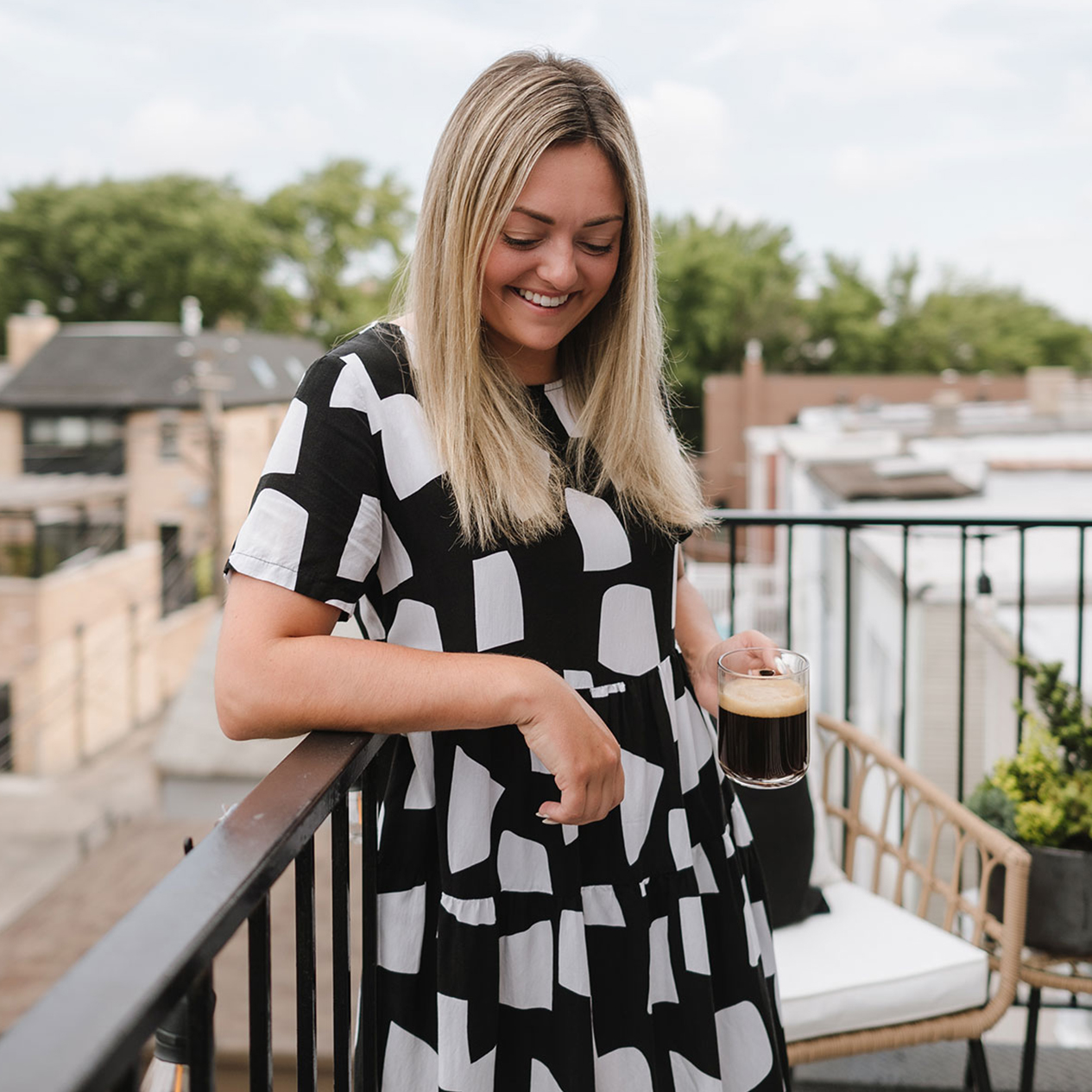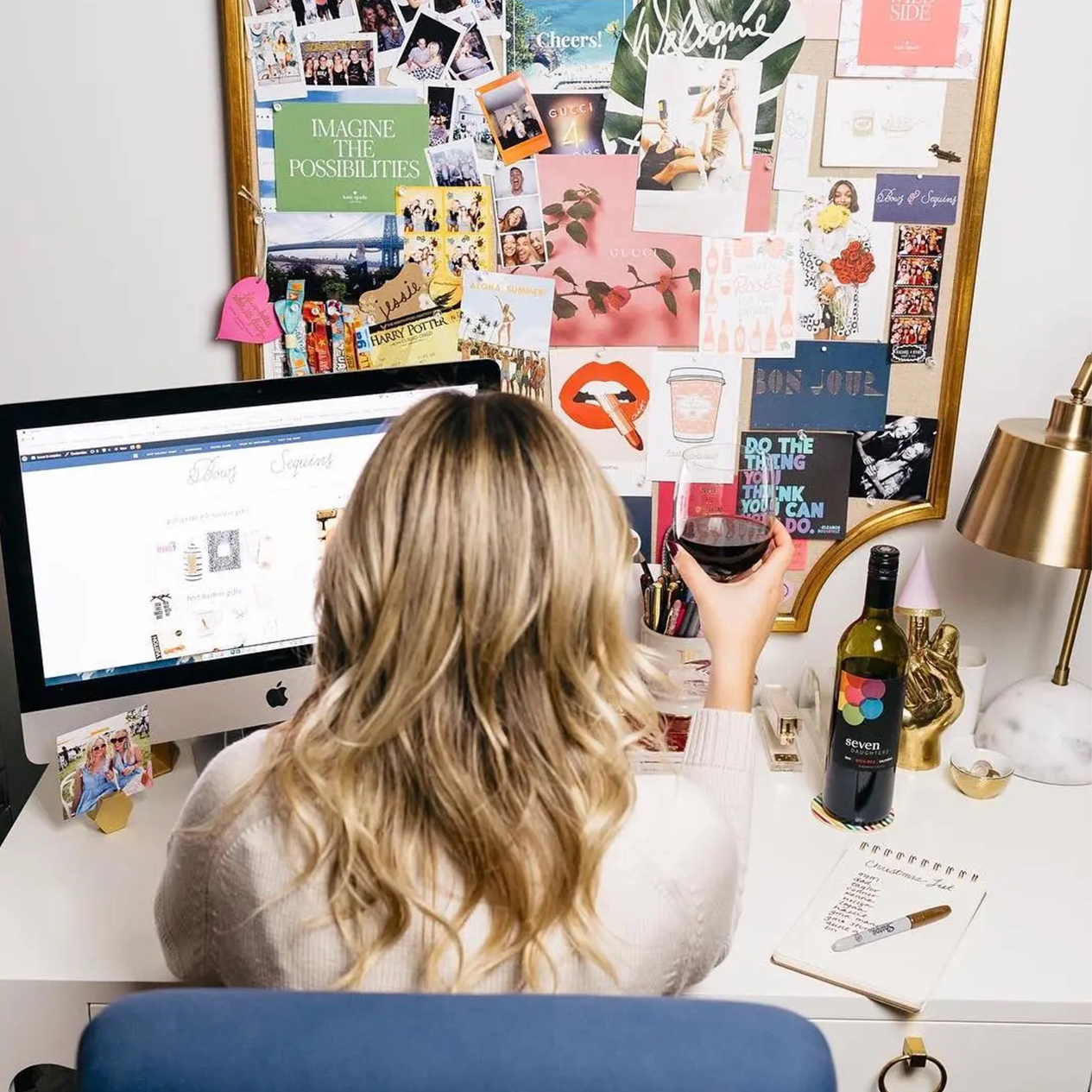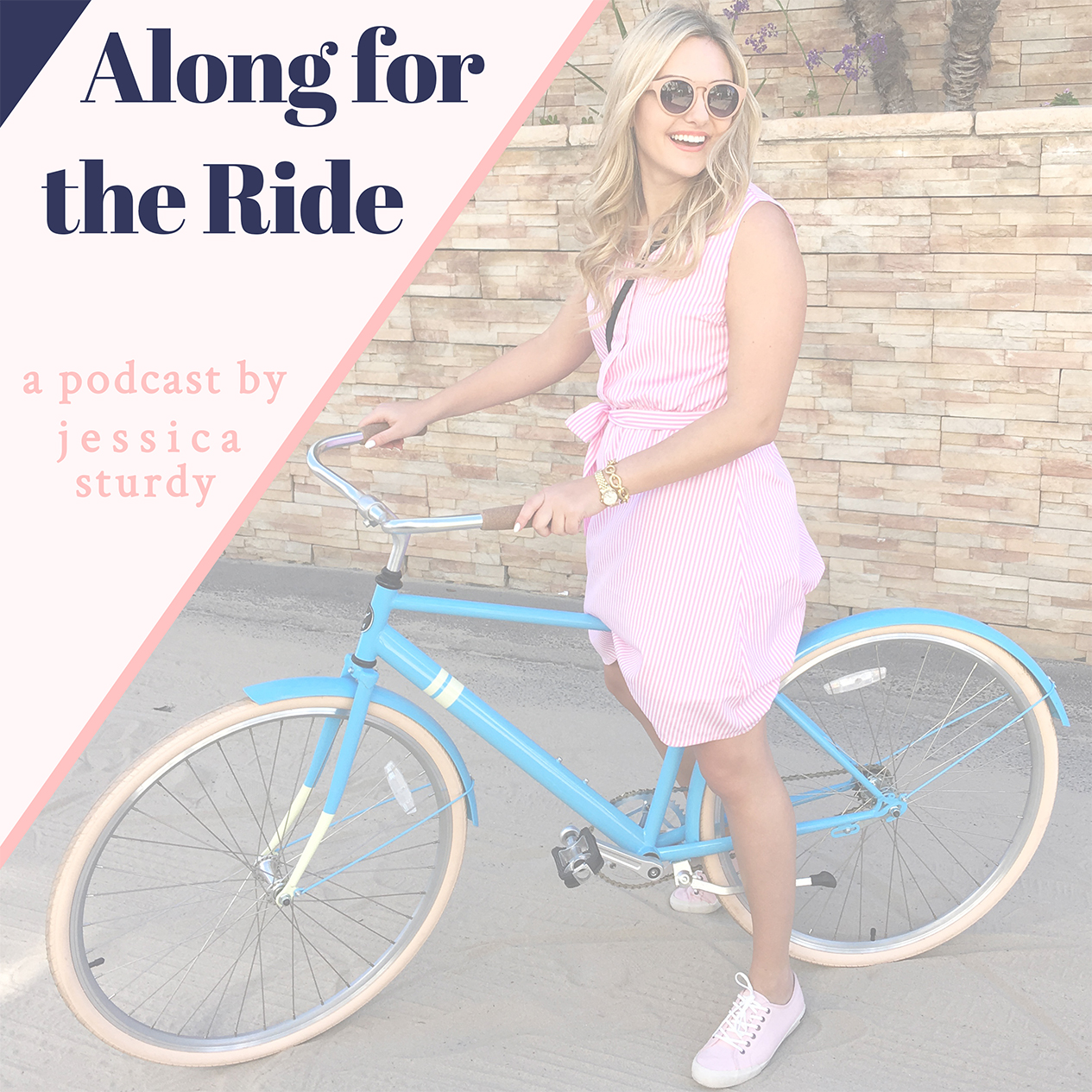
Today’s post is one I’ve had sitting in my drafts since last summer, never really knowing when was the right time to press publish. I’ve mentioned anxiety a lot before, and even did a whole podcast episode about it — AFTR #7. But in today’s current coronavirus climate, I don’t think there could be a better time to hit publish on this one. I know a lot of people are experiencing anxiety right now, and some may be for the very first time. Anxiety is a term that gets thrown around a lot, almost to the point where people use “stress” and “anxiety” interchangeably. But as someone who’s been diagnosed by a psychiatrist as having “generalized anxiety disorder,” I can assure you they are not the same.
Anxiety is a hell of a thing. Some days, I feel like I’m totally fine, and there are other days where I’m like, “There’s no way in hell this is normal.” I always think there’s no rhyme or reason why/when I have my ‘bad’ days, some days it just feels like I woke up on the wrong side of the bed, but in an anxiety-ridden kind of way. But after thirty years, I’ve definitely started to notice some patterns in the precursors. Sure, a lot of the time it does hit me like a ton of bricks. But usually if I stop and reflect, it’s like, “Ahh, no wonder I’m feeling like this.” Additionally, I’ve gotten pretty good at (mostly) managing my anxiety with a few tried and true tips/tricks.
*Editors Note: I’ve since been medicated for my anxiety, which is something I do plan to talk about in the future, but for the sake of this post, I’ve left it as is, just changing some dates to read accurately. (You can read that post here.) I’ve struggled with anxiety my entire life, even if I didn’t have the resources or knowledge to know it when I was younger. So while I am currently taking medication, these tips got me through my entire adult life so far and I hope they can help you, too!
Change really kicks my anxiety into high gear, especially in times where I feel particularly out of control. For me personally, most of the time my anxiety feels like my mind is racing so fast it will never slow down, a never-ending avalanche of spiraling thoughts, I can’t concentrate to save my life, a flood of negative self-talk, a tightness in my chest, and my heart beating so fast it seems as if I can hear it and feel it throughout my entire body. It also manifests as me not being able to sleep, feeling a debilitating sense of overwhelm, and sometimes even breaking out in hives. #notcute
Through work with my therapist, I’ve gotten to the point where I can recognize the earlier symptoms of anxiety. Whereas three years ago, I didn’t usually catch myself feeling anxious until I was at a 7 or 8 (on a scale of 1-10), which makes it harder to come down from. Nowadays, I try to be conscious of the little signs and feelings, so I can start to manage it when I’m at a 3 or a 4. By catching it earlier, I can be intentional about stopping the spiral before it gets out of hand or leads to a panic attack. (I’ve also been diagnosed with a “mild panic disorder,” so know that might not be applicable to the way you experience anxiety, I’m just sharing my experience.)
And what are these little things? For me, it can look like clenching my jaw, my shoulders being up at my ears, picking my my thumbs or eyebrows, restlessness, sweaty palms, twirling my hair, and feeling highly irritable. By practicing some mindfulness, I’m able to notice these little things and take a step back. I always start with some slow, deep breaths and then try to evaluate where I’m at and what from the list below would help me feel more at ease.
Before we get into those, though, I feel like we need to at least touch on panic attacks. In recent years, I’ve probably only had five or so when I’m awake. But looking back to college and high school, I can remember some intense periods where I was most certainly having a panic attack and just didn’t understand it at the time.
The first one in recent years was in January of 2017, and thankfully, I had already made an appointment to see a therapist (my current therapist) the very next day, so that gave me a lot of peace knowing I’d be able to talk to a professional the very next day. But when it was happening, oh my god, I had never been so scared. I legitimately thought I was having a heart attack. I couldn’t catch my breath, I could feel my heart beat in every cell of my body, and the fear of not knowing what was going on made it even worse. I’ll never forget laying on my bed in a starfish position wondering if I should get in an Uber and go to the hospital, call the front desk at my building, call 911, and then my mind simultaneously racing through the scenarios if I were to die in my apartment who would find me and when, etc. When I realized I wasn’t dying, I started googling what the heck had just happened and realized that I potentially could have had a panic attack, I just did everything I could think of to calm myself down. I lit candles in my bathroom, turned off the lights, and laid in the bathtub in the dark for what seemed like hours.
As someone who’s anxiety regularly boils over into affecting my sleep, it’s no surprise to me that I’ve had countless panic attacks in my sleep. In periods where I’m struggling with anxiety more intensely, my dreams so closely mimic reality that it’s hard to separate the two. I’ll have dreams that I’m responding to an important email, running to Walgreens to buy toilet paper, shooting photos for a project, doing my expenses, etc. Basically, I’ll be performing the tasks on my to-do list in dreams, and it all seems so real that it’s an absolute mindfuck when you realize it hasn’t actually happened IRL. Or I’ll have more intense dreams that parallel different internal fears — I run into an ex looking happy as a clam with his new girlfriend, overhearing my grandfather talk about how I’ve gained weight, etc.
When it comes to nocturnal panic attacks, sometimes I only know I’ve had one overnight by how my chest and ribs feel the next day, coupled with an intense fatigue that I now know usually only follows a panic attack. This past summer, however, I started waking up during the few I had, and it was the most bizarre experience. The first time it happened, I was obviously groggy AF, trying to figure out if I was dreaming or not, feeling how bad my chest/ribs were still hurting, trying to take deep breaths, not knowing if it was over or still happening, wondering what the hell brought it on, etc.
For me, personally, when these nocturnal panic attacks started to pick up again last summer and fall, it was a signal that maybe my anxiety was having more of an effect on me than I realized. While I was awake, I had gotten so ‘good’ at managing my anxiety day-to-day and felt fairly in control of the situation, but then all bets were off when I was asleep.
If you struggle with panic attacks and haven’t seen a doctor or therapist, it’s truly in your best interest to do so. ❤️

What Triggers My Anxiety
First and foremost, it’s my feeling out of control, and that spans from everything from general uncertainty to perfectionism. As you’ll see by the list of environmental triggers below, almost all of them boil back down to not having control.
Outside of financial worry, overwhelm with work, relationship problems, too many tasks and to-do’s, or a specific place/peson (all of which are sure to spike my anxiety, but easy to pinpoint), this list of environmental triggers are the more sneaky ones for me.
Environmental Triggers
- things not going “according to plan”
- being out of my workout routine
- not having enough down time or alone time — i always use the phrase “living a life that’s not my own” and what I mean by that is I’m running around from obligation to obligation, none of it on my terms or schedule. going through the motions, i guess.
- not sleeping well for an extended period of time
- poor health habits — too much drinking, prolonged periods of eating poorly, not drinking enough water, etc.
- getting out of my general wellness practices — journaling, meditating, yoga, different spiritual practices, etc.
How I Manage My Anxiety
Editor’s Note: While my therapist and I came to the decision that I should consider medication this past fall/winter, it was not one that came lightly. I’ve seen her for the last three years, and I specifically chose her because she has more of a holistic approach. If you’ve been following along since then, I’m sure it’s evident that I’ve completely overhauled my life in these last three years. It wasn’t until I’d spent three years putting in the work to alleviate my anxiety without medication that we finally discussed me seeing a psychiatrist to inquire about medication. Heck, even last spring, I told my therapist that I thought I needed to be on medication, and she disagreed. So I just want reiterate that these tactics do work for managing anxiety, and are what got me through the last 29 years — I just so happen to be on medication now.
THERAPY
I can’t say enough good things about therapy. I honestly believe that pretty much anyone and everyone should go to therapy. (And if you’re someone who scoffs at that and don’t think you’d ever need to go to therapy, I think you’re probably a prime candidate. 🙃 Sorry, don’t shoot the messenger!) I’ve gone to therapy off-and-on since I was 16, and regularly for the last 3+ years.
When it comes to personal development and emotional intelligence, a therapist is like your running buddy through the growth. I know most of us are familiar with working out, so I always say that a therapist is almost like a personal trainer, but for your mind. It’s definitely not always rainbows and butterflies and “talking about your feelings.” It’s fucking work. Sometimes you might hate it, but you always feel better afterwards. Through therapy, you can become aware of your blind spots, gain insight, face your shadows, learn coping tools, and so much more. It’s truly the best investment in yourself!
I’ve found that therapy has made me so much more self aware. Sometimes you might not know what’s wrong or what feels off, but by talking and being vulnerable, some of those things surface and become more clear.
Truthfully, I didn’t really know that I struggled with anxiety until I started working with my current therapist three years ago. I mean, I knew how I felt (consistent feelings of dread, sadness, and worry), but I just thought it was normal, as I’d always felt that way.
In my not-so-professional opinion, it’s worth keeping up with therapy in the better times, too. Maybe you cut your sessions down to only once per month or every other month as a check-in, but at least for me (as someone who’s prone to anxiety and depression), having my next appointment on the calendar holds me accountable in many different ways. And I totally get the cost could be a deterrent, but if my self-employed health insurance can make it $40 per session, I’m sure most can figure out an affordable solution that works for them. (It’s literally ~one SoulCycle class.)
Since I’m very open about my going to therapy and very passionate about breaking the stigma surrounding it, I get asked about finding a therapist a lot. A referral from a friend or someone you know to a specific therapist or practice is always a great place to start, but if you don’t feel comfortable asking, my therapist has always recommended I tell people to use psychologytoday.com or goodtherapy.org. Personally, I’ve let my intuition kind of guide me when I’m looking at their pictures and reading through bios, and I’ve gotten pretty lucky finding a good matches for me. But forewarning: finding the right therapist can be kind of like dating! You might have to give it a few sessions to get into your groove, or try out a few before you find the right one.
MOVEMENT
I never saw a therapist for the 3+ years I lived in New York, but I found fitness classes soon after moving there, and they were my sense of sanity for sure. SoulCycle, hot yoga, pilates… Anything that links breath to movement is a surefire way for me to calm down.
But even if it’s not a fitness class, a walk, a run, or even some stretching does so much for my state of mind. Simply moving my body and focusing on my breath helps me to relieve anxiety!
BREATHING EXERCISES
When I was having a hard time in college (between my Freshman and Sophomore year, due to a health scare and my compulsively-cheating boyfriend 🙃), I saw a psychologist in my hometown that taught me the simple “in for four, out for four” breathing exercise. And it’s still something I use on a daily basis!
Counting my breath does wonders for bringing down my heart rate and relaxing my nervous system, and it’s quite simple — just match your inhales to your exhales. Silently count to four (or five or six) as you slowly inhale through your nose, and then count to the same number (in your head) as you slowly exhale through your mouth. Pause, and repeat.
You can also breathe in for four (through your nose), hold your breath for four counts at the top, and then exhale for four through your mouth. Another technique is one that lengthens your exhales… Breathe in for four, and then out for eight, without any pauses at the top or the bottom. The slower exhales can calm your nervous system in just a minute or three!
Headspace has a lot of breathing exercises, but I’m sure you can just YouTube some, too!
ROUTINES
I can’t speak to routines enough! There’s something about having control over the smallest parts of my day really makes a difference for me. I wake up, write in my journal and set some intentions for the day, make a coffee, make my bed, etc.
While I always knew that I seem to thrive when I’m in a routine, it wasn’t until I saw a therapist in Medellin, Colombia (that story is on the podcast!) that I realized how much routines actually play into anxiety. Even if it’s just a few things, I feel so much more grounded (and in control) when I keep some sense of normalcy by way of routine. This was especially helpful for me when I was living abroad!
At home here in Chicago, I start the day the same way every single day — writing in my 5 Minute Journal, making my bed, and making a coffee. Back when I lived alone, my morning routines were much stronger, and I think that was part of the shift that shook me so much when I moved last summer. No matter what phase I’m in, I absolutely always do the three things above, but over the years, I’ve had a few different iterations that include making celery juice while listening to Gabby Bernstein or Jen Sincero on Audible, drinking hot water with lemon, meditation, bulletproof coffee, etc. For me, it’s not so much about *what* I’m doing, but just making sure I do it to keep that consistency.
Although I’m probably due for an updated version, I’ve actually written an entire post about my morning routines here.
GET OUTSIDE
When I used to live closer to the lake, I’d go for a walk near the water (with my phone on airplane mode), just taking in my surroundings. No multi-tasking, no music or podcasts — just me, my breath, and nature. Maybe it’s a walk around your neighborhood, maybe it’s spending time in your backyard, but never underestimate the simple act of getting some fresh air!
PHONE A FRIEND
Whether it’s a close friend or a family member in your life, I have a few special people that I know I can rely on to lift my spirits and lend support when I’m struggling. ❤️
WRITE IT OUT
Writing has always been therapeutic for me, and journaling is a practice that always serves me right! And sometimes, if it’s a situation with someone in particular that has me riled up, I’ll write out my thoughts in the notes section of my phone as a “no send” message to get it off of my chest. I’ll even write out notes of things that I want to bring up with my therapist later, and whether or not I ever look back on that list, it helps to just clear my head. Writing is the release!
MEDITATION
If I’m able, attending a class at Chill in Chicago, or doing a Headspace meditation is usually helpful. Sometimes my mind is racing too much and I’m too restless to be able to sit down and relax, which is usually why I turn to some type of movement to release energy before I try to meditate.
GRATITUDE
Once I’m in a more even-keeled place, making a list of things I’m grateful for or excited about tends to shift my perspective greatly. Believe me, I’ve been in the lowest of lows where it feels impossible to be grateful, but there’s truly always something to be grateful for. Sunshine, fresh air, blue skies, a cup of coffee, your bed, a favorite song, etc.
And last, but not least: CBD
I always say this when I talk about my experience, but that night changed things for me. “Changed my life” sounds so damn cliché, but it was truly a major turning point for me.
When I first started using Equilibria last spring, I started out by taking a dropper full at night to help me relax and help me to fall sleep. And then when I would be feeling overly anxious at some point throughout the day, I would take half of a dropper to “take the edge off.” But here’s the thing — everyone’s body reacts differently. Equilibria actually has a Dosage Specialist that you can chat with to determine what’s right for you! For me, personally, it doesn’t make me tired at all, it just makes me feel calmer and more “even,” so I can take it during the day no problem.
One thing to know is that consistency is key. You’ll see the greatest benefit over time after taking it daily, which is why they offer the subscription option. You can read my entire blog post dedicated to CBD here!
FYI: My referral code JRS will get you 15% off your first order on the Equilibria site!
would love to hear from you if any of this resonated!
Thoughts, feedback, questions, anything. I’ve got nothing but time lately! 😉
xoxo jessica










Thank you for sharing! I’ve read your blog for a while and always appreciate (and relate to) your mental health/life posts. It’s great that you talk so frankly about therapy and anxiety, and I’m sure it helps readers who might be considering it themselves.
Also love your what I wore this week posts! They bring me back to when I first started reading blogs wayyyy too many years ago, which is fun. Hope you’re getting through this crazy time okay.
This is maybe my favorite post of yours that I’ve ever read. I struggle with (diagnosed) anxiety and depression and am in school right now to become a therapist, so I loved your differentiating between stress and GAD. Proud of you for being proactive and open about managing your mental health.
Thank you for sharing, Jessica! I feel like I have very similar anxious feelings and it’s nice to know that other people do too. I am going to research this CBD oil. I also thought it was a fad..but I believe you when you say that it works.